Netanyahu gives exclusive interview to TBN as he finalizes new government, prepares to go head-to-head with Iran
Bibi talks to TBN’s Erick Stakelbeck about his goals, his life, and his must-read new memoir, “BIBI: MY STORY”
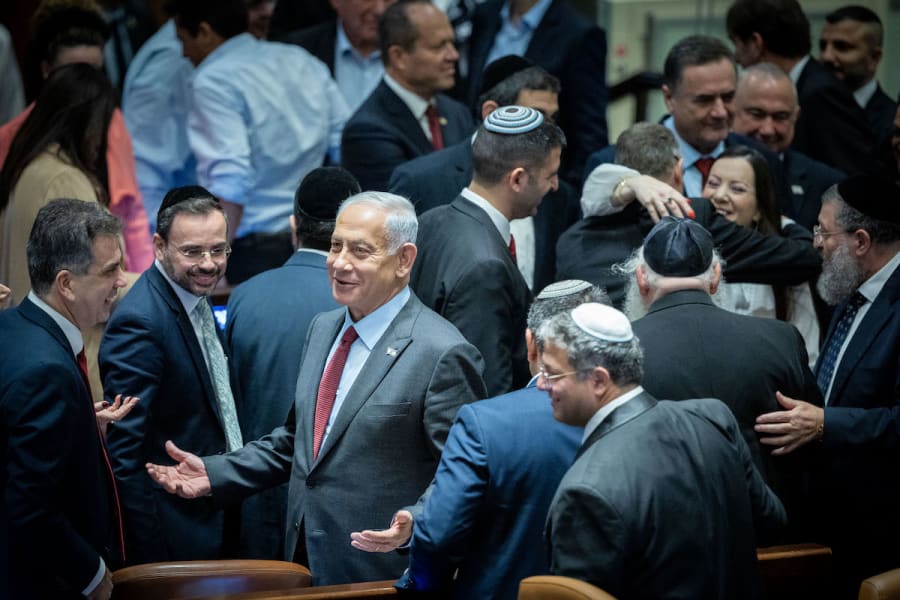
JERUSALEM—Last night, just minutes before the midnight deadline, Benjamin “Bibi” Netanyahu informed Israeli President Isaac Herzog that he had finalized his new government.
It is expected that he and his Cabinet will be sworn in on Jan. 2.
Tonight, at 10 p.m. EST, Netanyahu will appear on TBN, the world’s most-watched Christian TV network, to discuss what he wants most to accomplish as he re-takes power.
He will also discuss his best-selling new memoir, “BIBI: MY STORY,” which was the ALL ISRAEL NEWS Book Club choice in November.
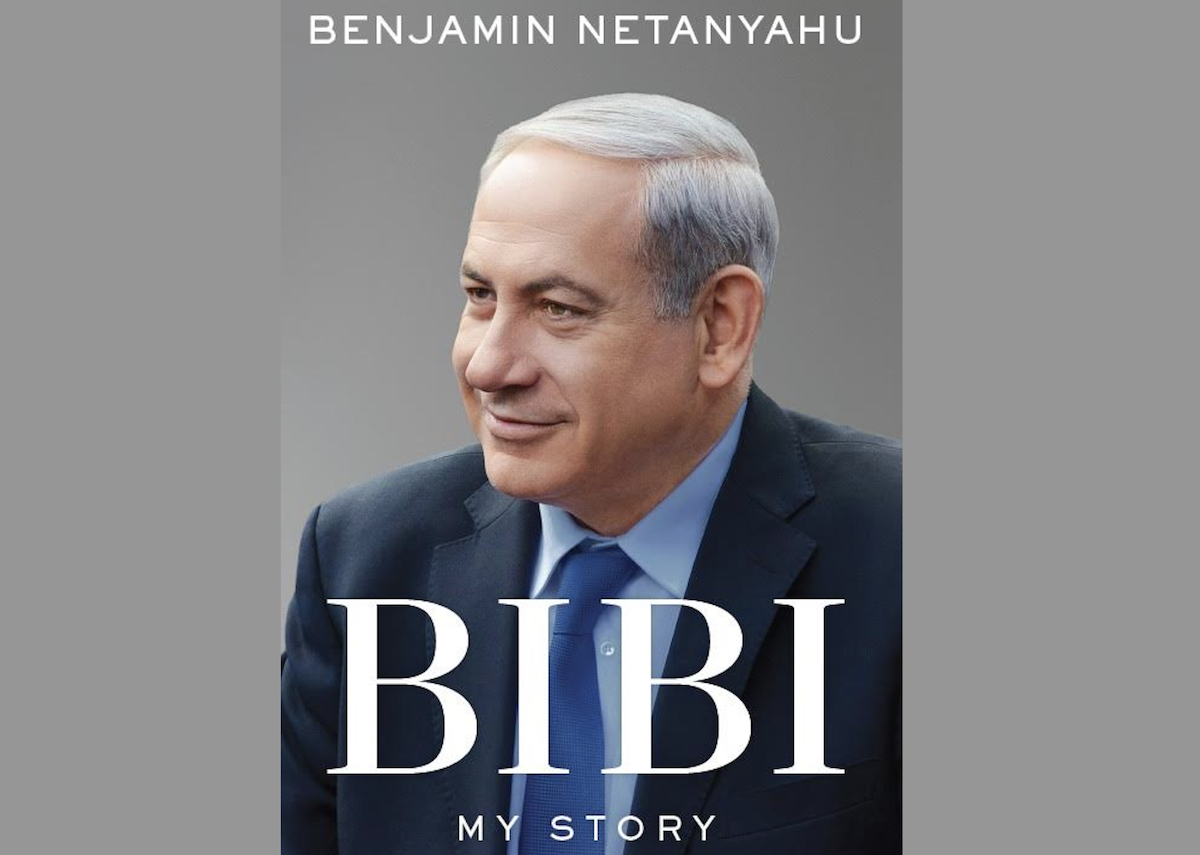
Erick Stakelbeck – host of “The Watchman” – recorded the interview last week.
Not long after, I talked to Erick about how he got the interview, why Bibi is talking with Christian and Arab reporters and not Israeli reporters, and his impressions of Netanyahu – the man and the leader – as Bibi prepares to lead his sixth Israeli government over the past 30 years.
The following is a transcript of our conversation, lightly edited for clarity.
JOEL ROSENBERG: Erick Stakelbeck, you had an amazing opportunity to interview Benjamin Netanyahu for your show on TBN, “The Watchman,” which is a great show. I absolutely love it. And this is a big interview. Bibi is on a media blitz. And even while he's trying to build a new government coalition, there’s been a lot of angst and controversy over his new team. But he's clearly making time to do interviews to promote his new book, and not just for general media but particularly for Christian media, starting with Matt Crouch, the head of TBN. That became an hour-long special. Talk about how you got your interview with Bibi.
ERICK STAKELBECK: Basically, Bibi is doing – like you said – he's on a book publicity tour right now, which you know very well. And he's done media in a way he hasn't in the past. Before you would see him on maybe CNN, maybe on Fox News. But not many. This time, it's been kind of a blitz. He's gone to outlets which maybe in the past he didn't necessarily go to.
I saw that and said, “Wow, you know, it'd be great to sit down with him.” And a friend of mine who's actually working with Bibi's publicity team for the book reached out to me just as I was thinking of reaching out to them. He beat me to the punch and he said, “Hey, how would you like to do an interview with the prime minister?” And I said, “I would love to. You read my mind.” And then it happened very fast. A few days later, I took a train up to New York City to TBN's New York City studio. The prime minister-to-be was in Jerusalem and we were supposed to go for 25 minutes. He gave us 35 minutes.
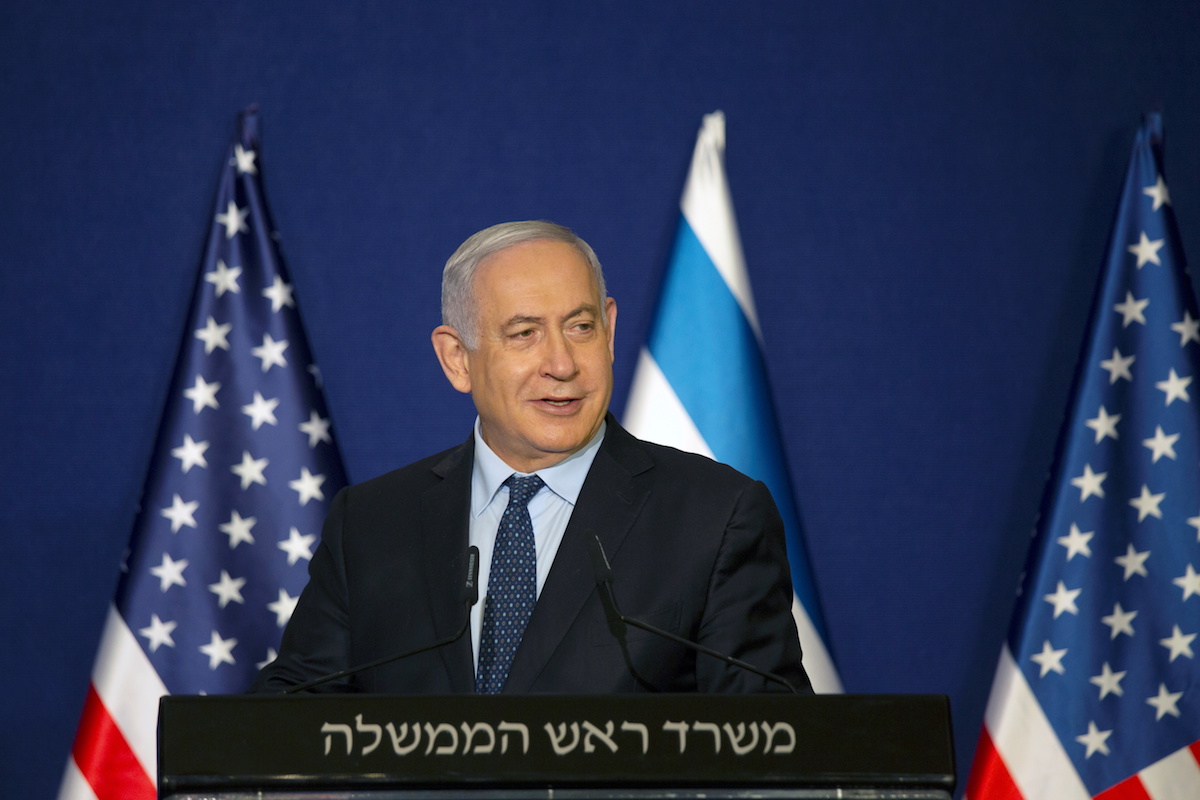
ROSENBERG: How would you compare the conversation we had with Netanyahu – that was off-the-record in April – as part of the Abraham Accords Evangelical delegation that I led, and you were part of?
STAKELBECK: That meeting [in April] was running through my head, actually, Joel, as this interview was taking place because you wrote something -- it was funny at the time, but so true – you said Bibi looked “tanned, rested and ready.” And he really did. And I had this same exact impression during this interview, that there's just a peace about him, even though there’s a lot of controversy swirling around him and he's on trial, under indictment.
Yet you wouldn't know it by talking to him. He was laser focused on three main goals.
Number one: Stop Iran by any means necessary. There must be a credible military threat.
Number two: Expand the Abraham Accords. And he mentioned in particular Saudi Arabia. And he said if such a peace deal with the Saudis were to happen, it would be a “quantum leap” and would essentially, in his view, solve the Israel-Arab conflict, which I thought was fascinating.
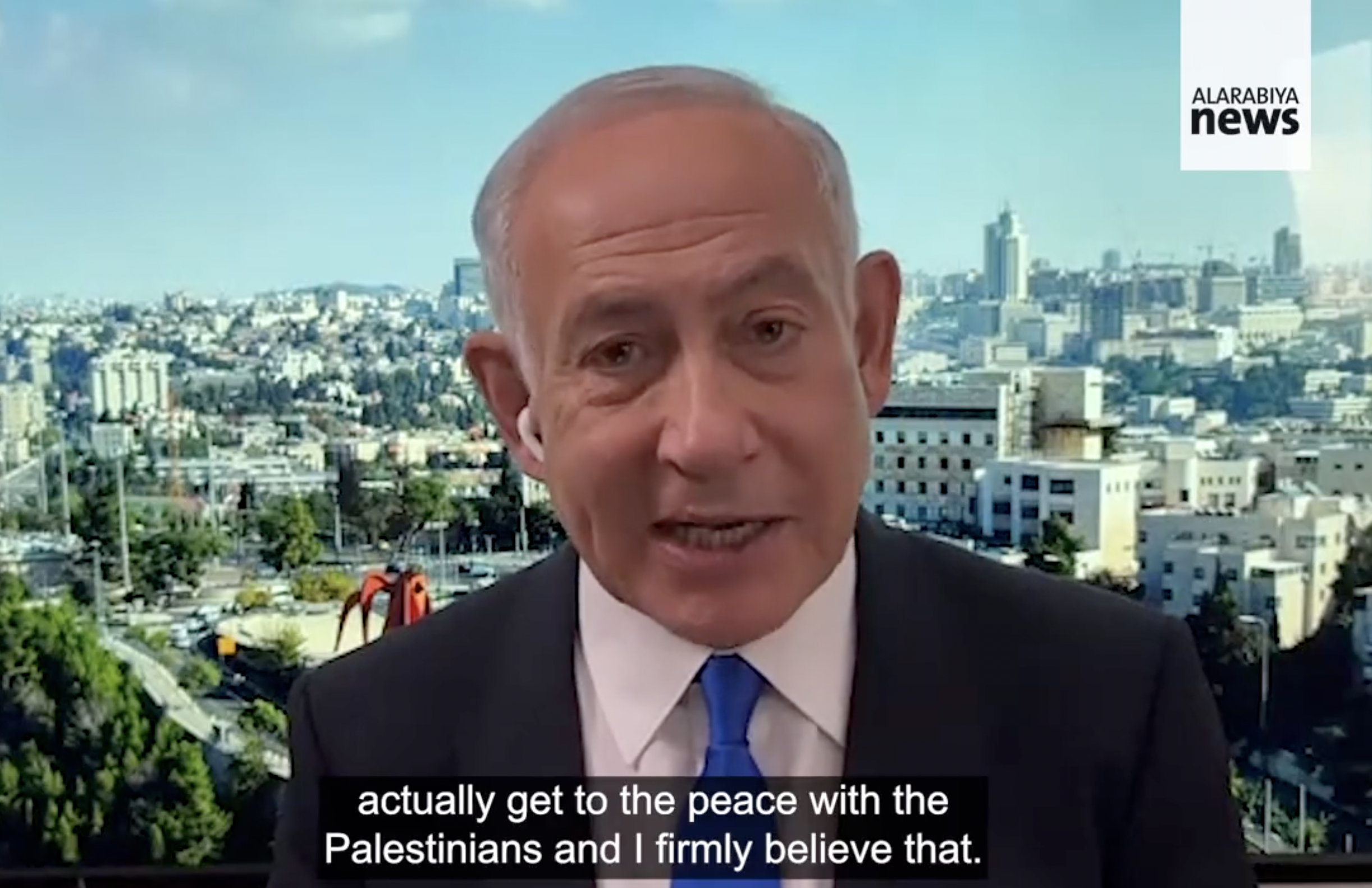
ROSENBERG: That’s something Bibi just told a Saudi newspaper – I wrote a story about it. But, I’m fascinated that he’s speaking to so many in the Christian media and now with the Saudi media. It's not that he's never done Christian media before, but he's doing so much more of it. He's not just selling a book. He’s selling a message. And he's not even in office yet, but he's on message offense.
STAKELBECK: I think it shows that he knows who his friends are. He said during our interview that the strongest friends in the world for Israel are in the Christian community.
But – and this would have been maybe inconceivable to say ten years ago -- he also has friends in the Sunni Arab world: Bahrain, the UAE, the Saudis. These are kind of kindred spirits right now, at least in terms of stopping Iran.
And the number three point that he made in his three goals is that he wants to build up Israel's economy and continue to build Israel into a high-tech innovation powerhouse, a superpower punching far above its weight.
It’s important to note that Bibi helped to revolutionize Israel's economy from what was a largely socialistic economy for decades. And he really pushed into fast-forward Israel's trail into the “innovation nation” and helped it become fully capitalistic, and helped it really flourish economically when other countries are struggling.
I think of the Great Recession 2008. I even think of COVID. Yet Israel was able to weather those storms much better than others. And I think he's a large part of that.
His economic vision -- he credited much of that to his father -- and during the interview, Joel, we talked about his father's influence and the book. I know you've read it as well, "Bibi: My Story." It's fascinating because it digs into Bibi the man and what shaped his ideology and his worldview. And of course, his brother -- Yoni's death was a massive part in that. But his father, who was a great historian, a great scholar – who one of the interesting nuggets in the book – he was meeting with U.S. officials, making visits here in the run up to the re-establishment of Israel before 1948.
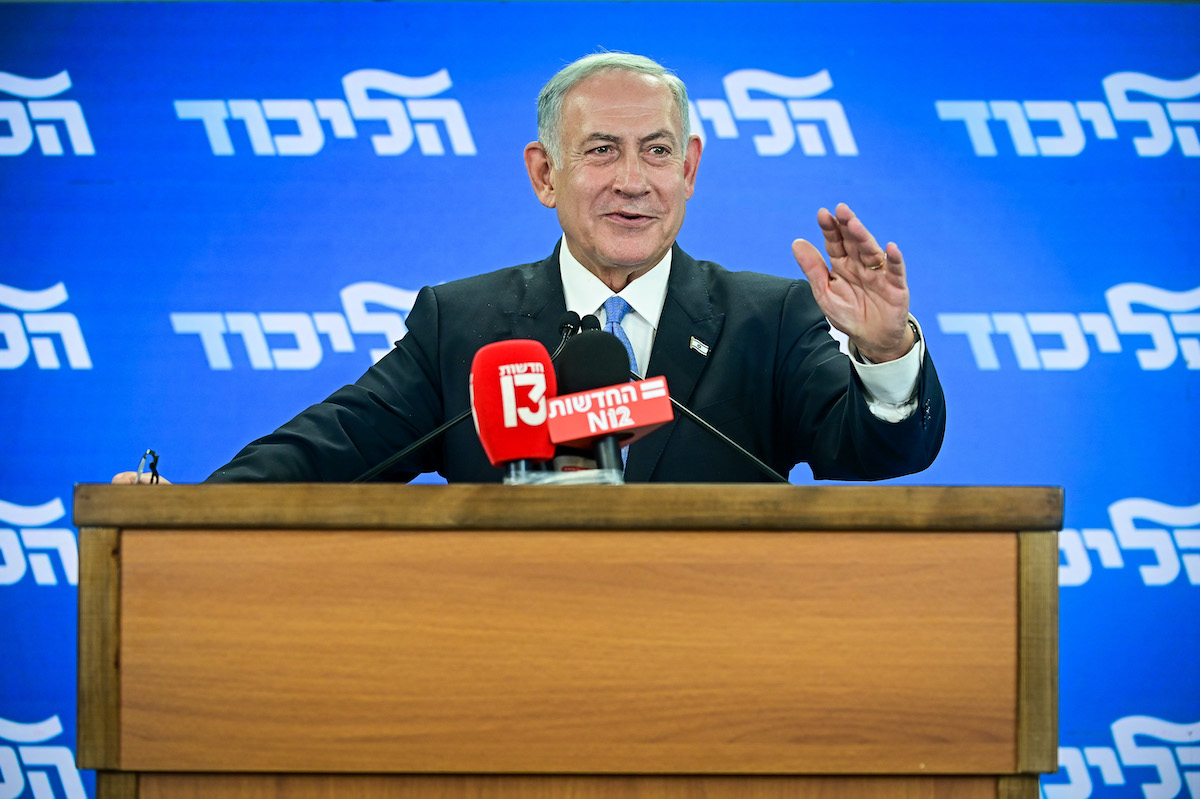
ROSENBERG: Most political autobiographies are horrible. They're boring. They're often ghostwritten and designed not to tell you much. But Bibi wrote this himself. He is a very good writer. And he was willing to tell us stuff that most of us don't know. I first met him 22 years ago. And there were stories in the book that I had no idea about. I expected him to be candid about Yoni. But I didn't really understand or fully appreciated just how much influence his father had on him. Bibi doesn't talk about it much, or maybe nobody in the Israeli media lets him talk about it.
And that's one other point I would make – Netanyahu is not talking to the Israeli media. He’s talking to American media, and Christian media, and even Arab media. But he's not talking to the Israeli media because he knows he won't get a fair shake. That's how he sees it. And it's hard to say that he's wrong because we've seen that for decades.
STAKELBECK: That’s true – and it’s also interesting that he’s not been asked once in these interviews about a Palestinian state. Usually, when he does the rounds of American media, the New York Times, CNN, the Washington Post, that’s their main focus: settlements, how to create Palestinian state, and the peace process. It has to be refreshing for him not to be hammered about that constantly in this current round of interviews he's doing.
And by the way, he not only wrote this book – he wrote it in longhand, which is pretty amazing.
ROSENBERG: Sometimes in the back of a car when he's driving to this place or that road on vacation, in Hawaii.
What are your closing thoughts on the book, on him and on your conversation?
STAKELBECK: Yeah, I think, number one, he's been so transparent in this book. I mean, wow, if you want to know what makes Bibi Netanyahu tick, this book really reveals a lot.
Second, Churchill is a name that came up several times during our conversation, Joel. Bibi certainly sees himself as a man of destiny, without a doubt. Just as Churchill saw the gathering storm of Nazi Germany and was roundly criticized, isolated, called an alarmist, a warmonger, ridiculed by his own parliament, Bibi feels the same way today. He thinks, “The West doesn't get it. But I get this, and I'm in this position ‘for such a time’ as this to deal with this Iran nuclear threat, to preserve the existence of the Jewish people.” And when we met back in late April, that was his message as well. Look, he's 73 years old. And I asked him, why come back? You don't need this. You have a nice home in Caesarea.
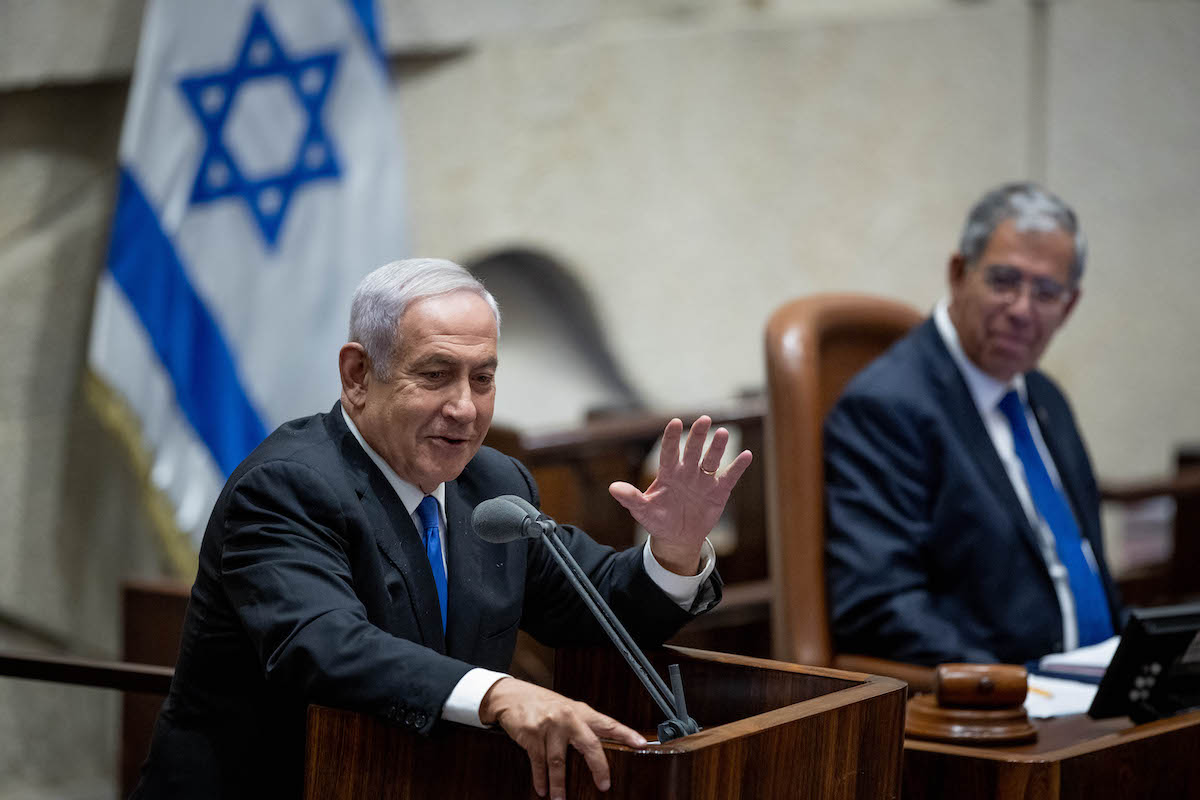
ROSENBERG: He could be making millions of dollars on boards of major high-tech companies.
STAKELBECK: Right. He could be cashing in and not facing the daily onslaught from the Israeli media and not going into the buzzsaw of the Biden administration, the E.U., the U.N. Why come back to all this at the age of 73?
And it's Iran – that’s the main reason.
But also, to expand the Abraham Accords – and especially make peace with the Saudis.
Those things would cement his position as an historic figure.
Churchill is a man that Bibi admires and it kept coming up in the conversation. The modern day echoes of Churchill and that period in the 30s and early 40s and how it's repeating itself today.
Lastly, I did ask him about the hand of fate, the hand of destiny in his life and how things have all come together, even Yoni's death and things like, to bring him to where he is today.
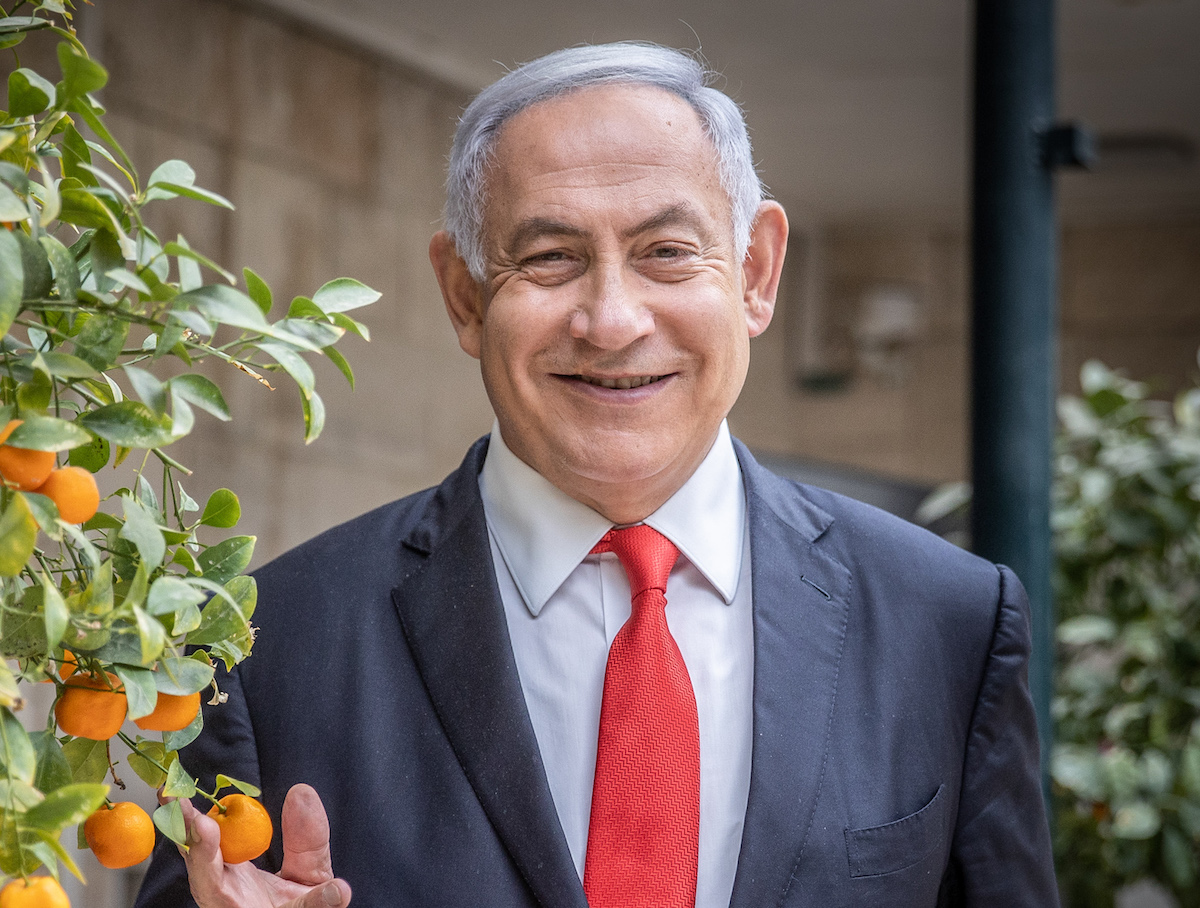
ROSENBERG: And the many times that he almost died. Almost freezing to death in the Golan Heights. Almost drowning in the Nile, in a firefight with Egyptian forces. Being shot multiple times in combat. Most people focus on Yoni, understandably, but Bibi was shot multiple times in combat.
STAKELBECK: Even stung by a scorpion.
ROSENBERG: True – stung by a scorpion. Almost died of heat exhaustion in the desert as a soldier. And then one political death after another. He's the only Israeli prime minister in history who has been voted out of office twice and still come back for a third time.
STAKELBECK: You're right. He said in the interview, “I'm the Comeback Kid two times over.” So, all of these life experiences, and I get the sense in talking to him that, look, he is 73 now. He's Israel's longest serving prime minister. Fifteen years at the helm. And more to come. He's able to take the long view of his life now and everything leading up to this moment. And I think this book was probably huge for him in doing that. It was probably therapeutic in a lot of ways, to get it all out on paper. And I think now he's taking a step back and saying, "Wow, this has been quite a journey."
When I asked him about it, he said, he didn't come out and definitively say, “This is God's hand in my life,” but I don't think he's discounting it.
ROSENBERG: Well, congratulations, Erick. I think your interview is a wonderful complement to the sit-down, face-to-face, knee-to-knee interview that TBN’s CEO Matt Crouch.
And, you know, I just want to say, Erick, that you are a great journalist back from your CBN days and now what you're doing with TBN and you’re really helping to elevate Christian journalism.
You’re asking questions that Christians would want asked. Sometimes they're tough. Sometimes they're just an interesting angle that someone of no faith or a different faith, wouldn't even think of asking. And you're doing a great job. “The Watchman” is an amazing show. And this is going to be one people are going to watch.
STAKELBECK: Joel, thanks a lot. And right back at you on everything you said. I really appreciate it. Thank you so much.
ROSENGERG: My pleasure. God bless you and Merry Christmas.
STAKELBECK: You too. Merry Christmas and Happy Hanukkah.
ROSENBERG: Thank you very much. I appreciate it.

Joel C. Rosenberg is the editor-in-chief of ALL ISRAEL NEWS and ALL ARAB NEWS and the President and CEO of Near East Media. A New York Times best-selling author, Middle East analyst, and Evangelical leader, he lives in Jerusalem with his wife and sons.














